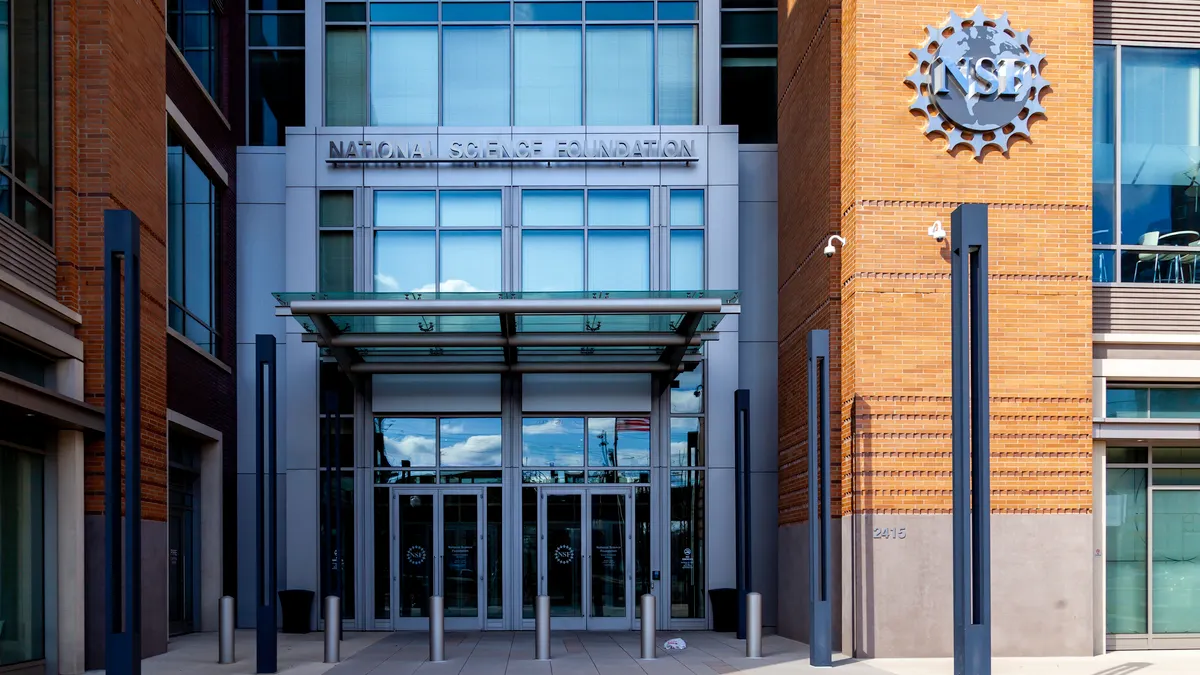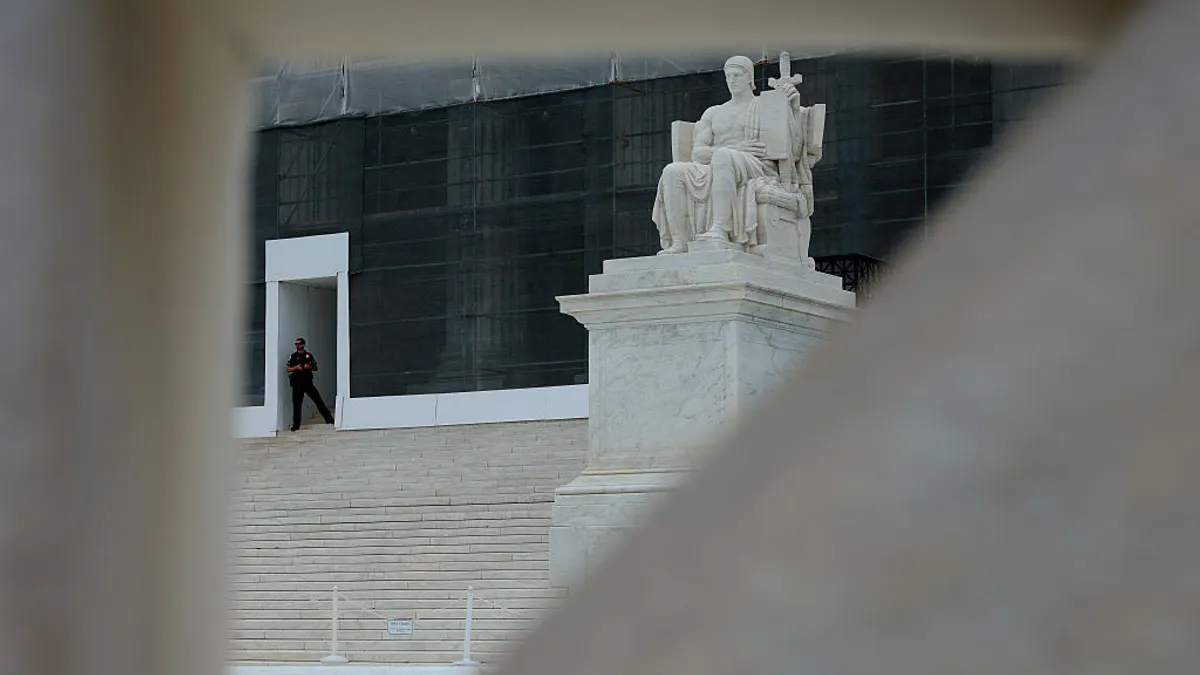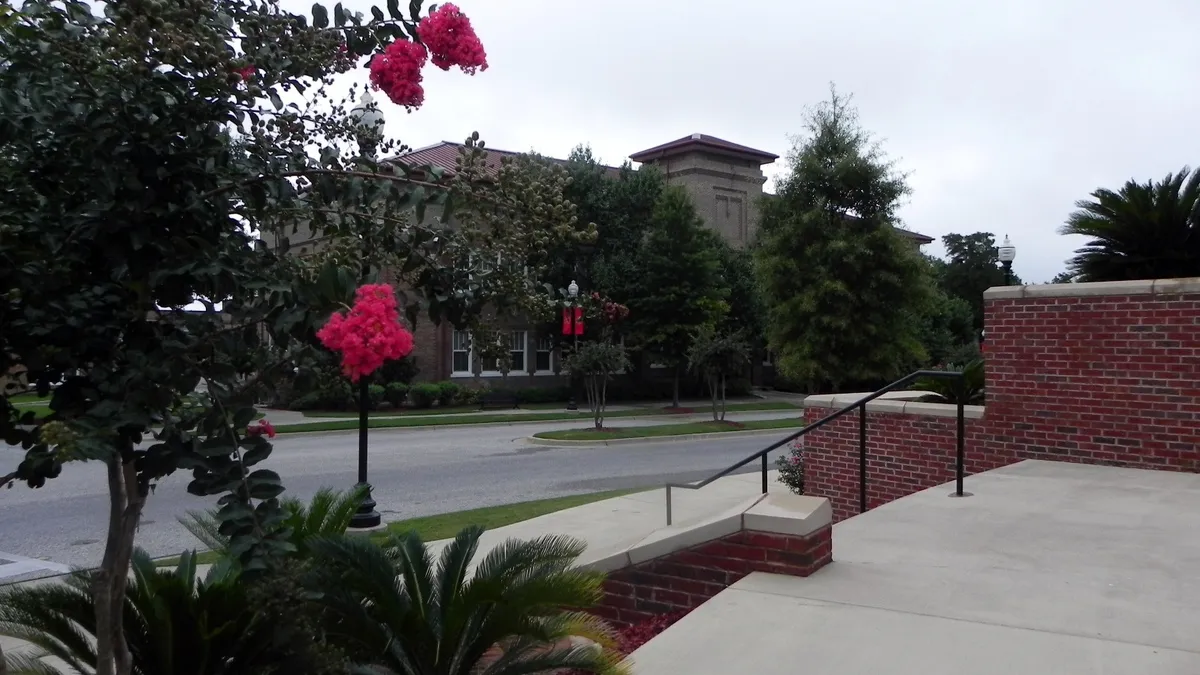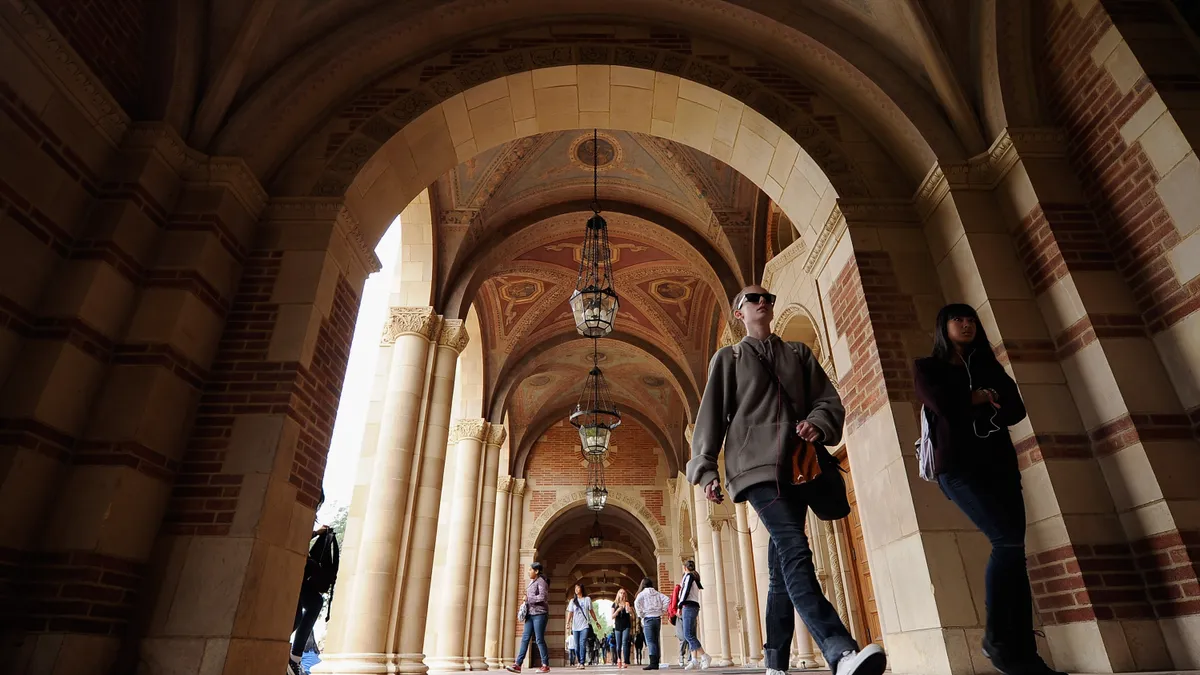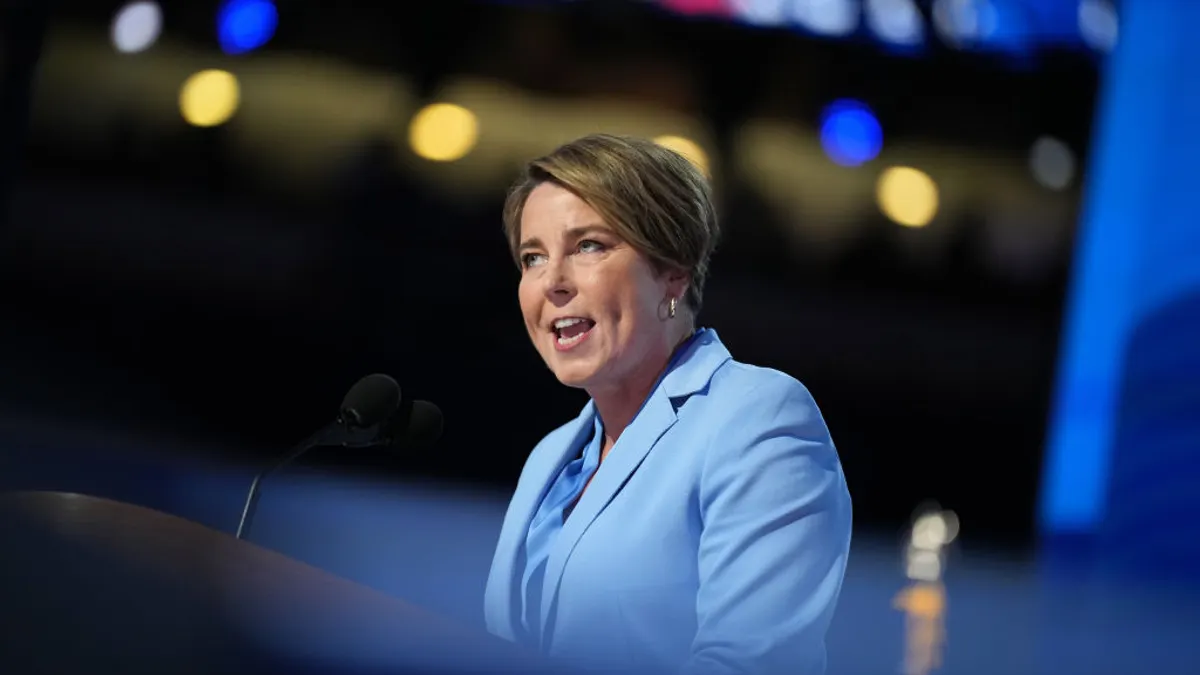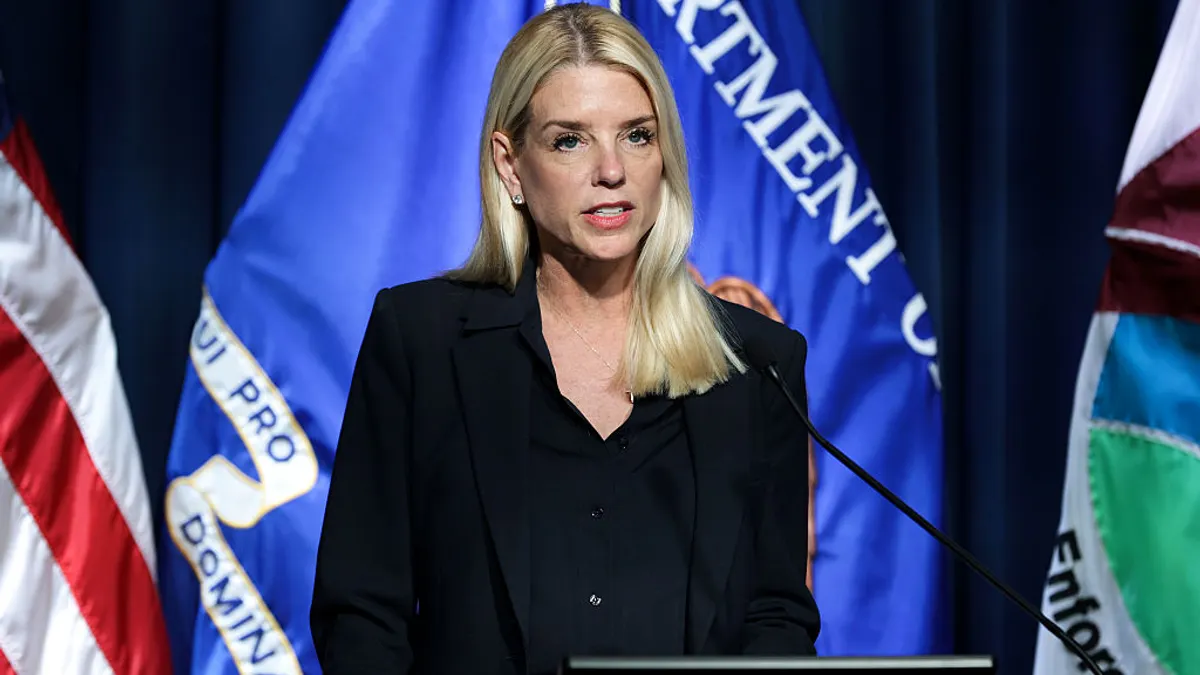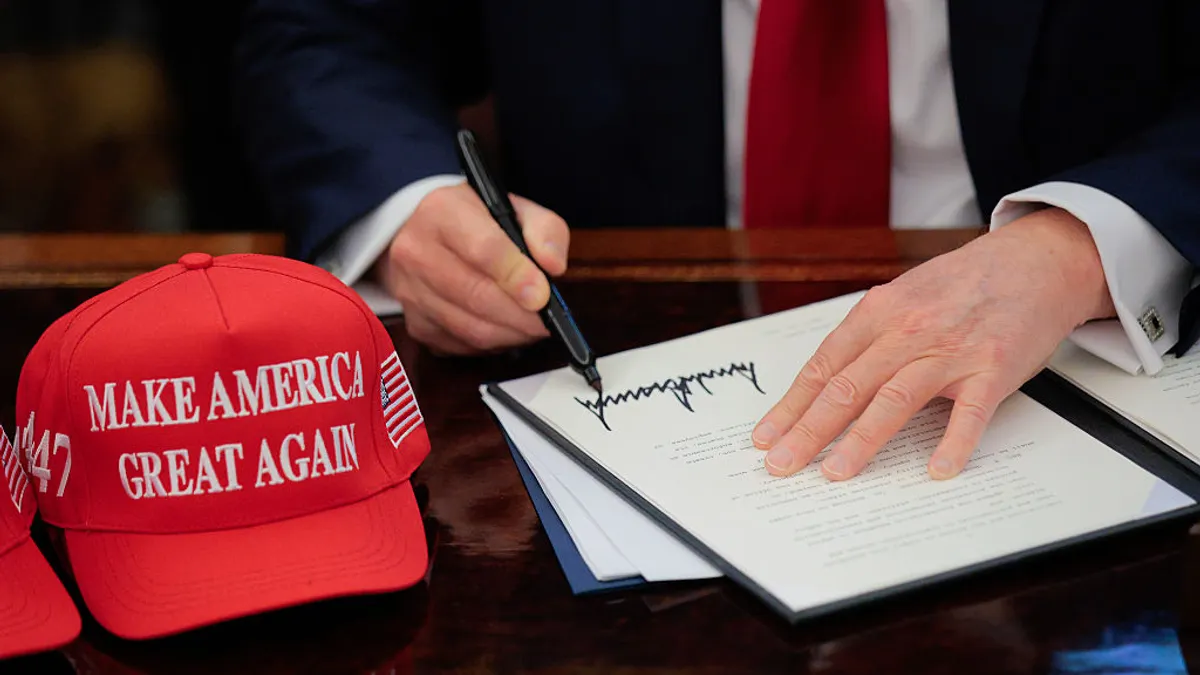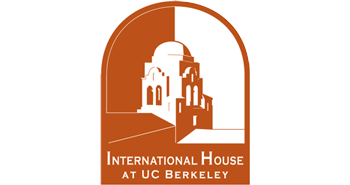William Singer — the man at the center of a far-reaching alleged admissions bribery scandal unearthed by federal investigators — explained his scheme as creating a more certain path into elite colleges for families with means.
In testimony, he said he merely created "a side door" that "guaranteed" to families that their children would be accepted, according to The New York Times.
That guarantee was the linchpin of an alleged arrangement that landed some students of wealthy parents in the colleges of their choice. But Singer also described a "back door," where "people go to institutional advancement and make large donations, but they're not guaranteed in." In a criminal complaint, Singer said that for parents going through this back door, colleges will give their children "a second look," but not much more.
His solution to the uncertainties of the back door (not to mention the front door, where students ostensibly compete on merit) may have been illegal, but his point wasn't necessarily wrong. Even a big donation to a college can't always solidify a spot for a student, admissions consultants say. And yet, big money isn't exactly silent in the process either.
In a rare window into admissions at one of the world's most elite universities, a lawsuit against Harvard revealed details about a confidential "Dean's Interest List" that often gave preferential treatment to relatives of major donors, according to The Harvard Crimson. Court records showed that the acceptance rate for students on it and another similar list over a six-year period was 42.2%, and a dean admitted in pretrial testimony that financial contributions can give applicants a boost, the student newspaper reported.
The Harvard revelations embody the exact impression colleges don't want to give about the role donations can play in admissions. Institutions typically go out of their way to avoid the appearance of a straightforward trade of a seat for a major gift.
"None of the colleges will want it to look like it's quid pro quo," said Larry Dannenberg, president of admissions consulting firm College Solutions. The more donations carry the appearance of a quid pro quo, "the less likely your child is going to get in on that scheme," he added.
"Walking in the door and saying, 'Here's a million dollars, or $400 million dollars, will you accept my children?' — that was never viewed as the way to get your kid into college," he said.
Monied relationships
More important (and optically preferable) is for parents to establish broad and deep ties to a college. "Do families need to donate to highly selective colleges? Absolutely not. Do our families donate to colleges? In large sums, no," said Brian Taylor, managing director with admissions consultancy Ivy Coach. "But many people think they can just give money to colleges and that will improve their students' cases for admission, and that's simply not true."
"You need to have a relationship with these colleges," Taylor added. "Maybe mom or dad went to the college or grandma, and grandpa went to the college. That indicates ties to a university. Simply giving money to a college right before a student applies for admission will be perceived ... as trying to buy your way in."
Along with those exposed in the Harvard lawsuit, there have been some high-profile examples of parents making donations ahead of their children's admission. Author and journalist Daniel Golden reported in his 2006 book, "The Price of Admission," that Jared Kushner's father, the developer Charles Kushner, pledged $2.5 million to Harvard in 1998 shortly before his son was accepted at the university even though administrators at Kushner's high school "expressed dismay" at the admission.
"Walking in the door and saying, 'Here's a million dollars, or $400 million dollars, will you accept my children?' — that was never viewed as the way to get your kid into college."

Larry Dannenberg
President, College Solutions
More recently, hip-hop star Dr. Dre made news after the Operation Varsity Blues scandal broke when he shared a post on Instagram that said: "My daughter got accepted into USC all on her own. No jail time!!!" He later deleted the post after it emerged that he donated $70 million to the University of Southern California, one of the schools caught up in the bribery scandal.
But the back door of donations and college relationships isn't a bribe. It's neither illegal nor certain. Dannenberg said he has seen situations where an Ivy League institution "turned down a student whose parents, grandparents, great-grandparents, great-great-grandparents, were all legacies, and the parents had donated significant money and were in a position to continue to donate significant money."
Those families weren't necessarily happy about the outcome, Dannenberg said. "But when we work with parents, we explain there are no guarantees in this process," he added. "Whenever we've been involved with families donating, we make it clear that it's not quid pro quo. You need to feel good about donating the money more than you need to feel my child's going to get in."
It's worth noting that data show legacies tend to be admitted at higher rates than non-legacies, even if their connections to possible donations are less clear.
'Preferential treatment'
Still, for large donors, colleges may "look the other way" on some admissions criteria, Taylor said. He and others have argued that donations that influence the admissions process shouldn't be tax-deductible. "They (parents) are receiving something in return, and you're not supposed to receive anything in return for tax-deductible donations," Taylor said. "They're receiving preferential treatment for their children in admission."
In the wake of the bribery scandal, and renewed debate about the advantage the wealthy have in the college admissions process, there is a push to do what Taylor has advocated for: end tax breaks for donations from the families of prospective students. On March 13, the day after the news of the scandal broke, Sen. Ron Wyden, a Democrat from Oregon, said he planned to introduce legislation that would end tax benefits on donations made to colleges by families whose children are or will soon be considered for enrollment.
"Yesterday's headlines about the wealthiest Americans buying access to our elite colleges and universities is just a new version of an old story," Wyden said in a statement announcing his plans. "While the prosecutor attempted to distinguish these crimes from payoffs in the form of buildings or stadiums to secure access for the undeserving, it is all part of the same corrupt system."
He went on to add: "Middle-class families don't have access to this back door for their children. If the wealthy want to grease the skids, they shouldn't be able to do so at the expense of American taxpayers."
Some industry groups were quick to push back against Wyden's proposal. In a statement issued the next day, Susan Whealler Johnston, CEO of the National Association of College and University Business Officers (NACUBO), described Wyden's approach as "impulsive and misguided, ultimately penalizing students, researchers, and other beneficiaries of higher education by drastically diminishing the ability of colleges and universities to receive tax-deductible charitable contributions."
NACUBO historically has advocated against changes in the tax code that might target college donations. In 2017, for instance, it opposed measures in the Republican tax bill that added an excise tax on some college endowments.
"NACUBO's members are concerned with any efforts to limit the tax incentives that help stimulate charitable giving," said Liz Clark, NACUBO's senior director for federal affairs. "At this time we don't have specific details (about legislation), but the announced proposal from Sen. Wyden painted broad strokes that have many of our members concerned."
Gauging the precise impact of Wyden's proposal on college donations is difficult given the lack of specifics the senator has offered so far. Even with details, it would likely be hard to quantify how much in donations it would affect.
About 3% of all giving comes from non-alumni parents of current or past students, according to data from the Council for Advancement and Support of Education (CASE). The non-alumni qualifier is important. Alumni as a group account for 26% of people and organizations giving to higher ed, second only to foundations at 30%, according to CASE.
"I think the public discourse following the news of the scandal has raised concerns about legacy admissions and equity in access and success at college, and I think many institutions are taking a hard look at their policies in light of the scandal."

Liz Clark
Senior director for federal affairs, NACUBO
CASE was among those that criticized Wyden's proposal. The group said in a statement, "Such a drastic proposal is misguided and would be detrimental to institutions that rely on philanthropic support."
"Our institutions are trying to raise as much private support to help them achieve their institutional missions and provide opportunities (for students) as they can," said Brian Flahaven, senior director for advocacy at CASE, in an interview. "Anything that makes that harder to do, from our perspective, actually hurts their ability to keep costs down and help provide access to students." He added, "I don't think there's such a straight transactional calculation that is going into most giving."
Flahaven, Clark and others also point out that donations to colleges generally go toward supporting other students by providing financial aid and scholarships.
Even so, the Varsity Blues scandal has renewed long-held concerns over inequity in higher ed, which the field can't ignore.
"I think the public discourse following the news of the scandal has raised concerns about legacy admissions and equity in access and success at college, and I think many institutions are taking a hard look at their policies in light of the scandal," Clark said.






